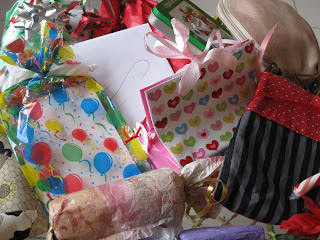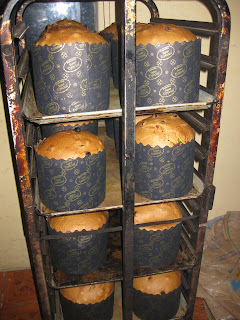But it all became worth it when I saw the white-capped Andes that encircle Huaraz.

At an elevation of 10, 170 feet, the city is flanked to the east by the unforgiving Cordillera Blanca (White Range). Towering over Huaraz are white-capped, rugged mountains, all higher than 19,600 feet. To the west, the north-south Huaylas valley in which Huaraz sits is contained by steep hills, surely reaching 13-14,000 feet in elevation. Some people say this is the prettiest part of the Peruvian Andes.
The city itself is a mix between an Andean pueblo, a mining town and a tourism hub for Europeans and other foreigners with the guts to climb the Cordillera's mountains.
Actually, David and his girlfriend are among the many Peruvians in Huaraz who came to work for the surrounding mines. David came all the way from Arequipa to work for Ferreyros, a Caterpillar branch in Peru, inspecting mining machinery. Caterpillar provides equipment for the Pierina gold mine near Huaraz. His girlfriend, Juliana, came from the northern province of Piura to work for a mining safety company.
Actually, David and his girlfriend are among the many Peruvians in Huaraz who came to work for the surrounding mines. David came all the way from Arequipa to work for Ferreyros, a Caterpillar branch in Peru, inspecting mining machinery. Caterpillar provides equipment for the Pierina gold mine near Huaraz. His girlfriend, Juliana, came from the northern province of Piura to work for a mining safety company.
David and Juliana, with their blackberries and brand-name clothing, wind the streets alongside many traditionally-dressed Quechuas, both dodging sunburned tourists like me who are trying to follow the guidebook and walk at the same time.

After walking the whole city to get my clogs which I had left in the bus (they're ugly enough that no one thought to steal them), Sergio and I ate breakfast with David and Juliana and their friend Luz.
David, el sureño, and Juliana, la norteña, are quite the star-crossed couple. Or at least they joke that they are. Arequipeños are known for their hot tempers, hard-working attitudes and overflowing pride. Norteños are known for their beach-like, laid back attitudes and hot foods. But the two of them seem to get along fine.
Before we finally rested for the evening in our $10 per night hotel, we caught a glimpse of the New Year's Eve sunset against the Huaylas valley.

 ...and just caddycorner from it, a worn-down colonial-style building.
...and just caddycorner from it, a worn-down colonial-style building. On the east side of the Plaza de Armas itself is executive building, La Casa de Pizarro, where President Alan Garcia watches over his country.
On the east side of the Plaza de Armas itself is executive building, La Casa de Pizarro, where President Alan Garcia watches over his country. We took a rest downtown at a pollo a la brasa chain called Norky's. Peruvians love their chicken with french fries, as Norky's industrial kitchen shows:
We took a rest downtown at a pollo a la brasa chain called Norky's. Peruvians love their chicken with french fries, as Norky's industrial kitchen shows: After lunch, we caught up with Sergio's cousin Yanira and followed her to Callao, another important area of Lima. Originally, it was the city's port and a wealthy area. Some parts of Callao are still nice, but like many port towns, not all of it is safe. Yanira told us that a few years ago, no one went to Callao because the drug-related crime was rampant on the streets.
After lunch, we caught up with Sergio's cousin Yanira and followed her to Callao, another important area of Lima. Originally, it was the city's port and a wealthy area. Some parts of Callao are still nice, but like many port towns, not all of it is safe. Yanira told us that a few years ago, no one went to Callao because the drug-related crime was rampant on the streets.


















.jpg)